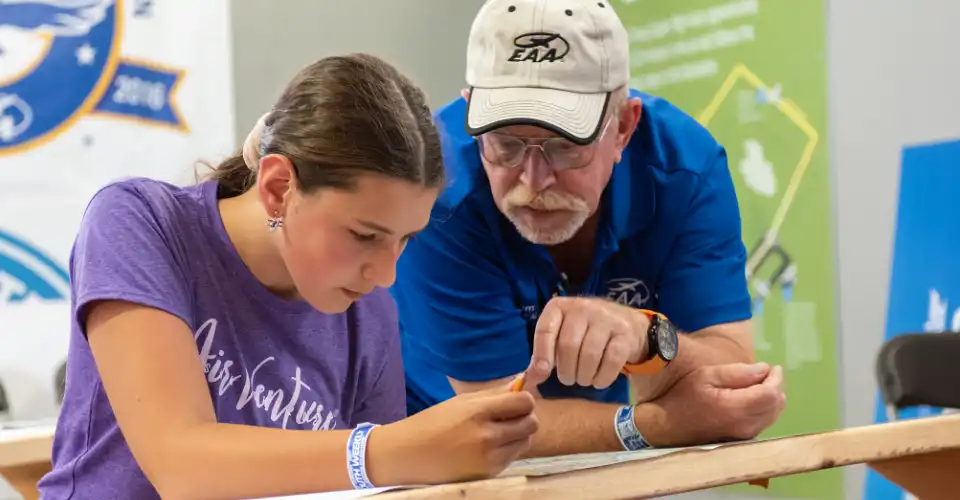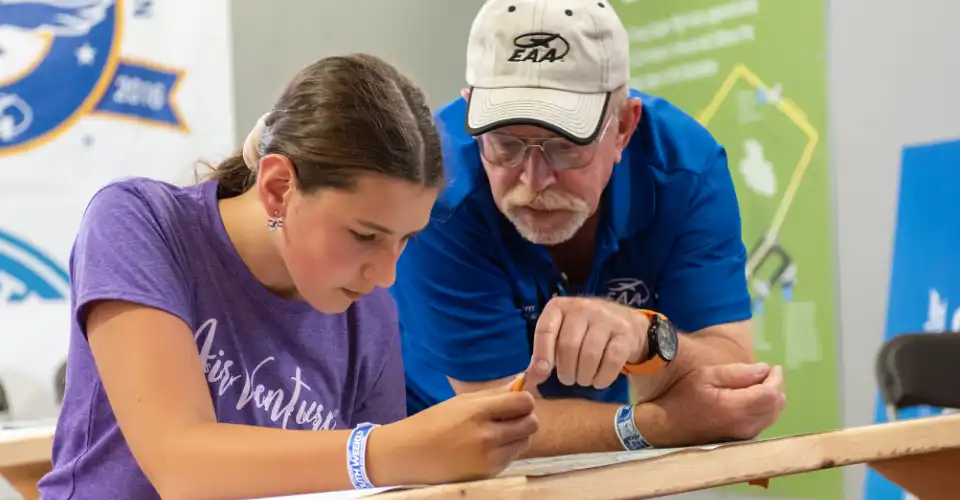EAA is bringing exciting, new virtual learning activities that educators, youth group leaders, and club leaders can bring to youth in grades K-12!
Try one of EAA’s featured activities today by selecting a topic to open a lesson video and download one of the supporting, hands-on activities.

Bernoulli’s Principle
Explore how moving air affects an object. Simple objects such as straws, ping pong balls, and paper illustrate this principle that helps explain lift (one of the four forces of flight).

Four Forces of Flight
Learn how the four forces of flight interact on the ground and in the air.
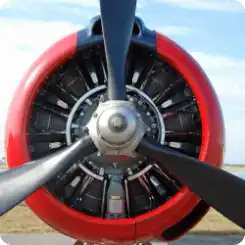
Torque
Torque is the twisting motion that affects all propeller-driven airplanes and helicopters. Learn more about torque in these hands-on activities.
Aviation Activities by Grade Level
EAA’s AeroEducate offers unlimited, free activities that can be customized to fit a lesson plan, age group, or by aviation interest! Create your educator account to view and download AeroEducate’s free activities.

Activities range in length from 20 to 30 minutes with structured activity design where students follow teacher directions.
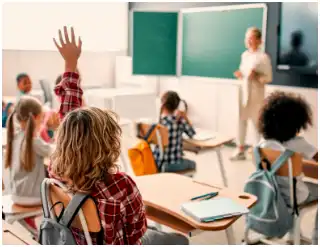
With projects that take about 30 to 40 minutes each, teachers present a problem and provide resources while students get to make some independent choices about various stages of the activity.

Students get to explore their own innovative ideas as teachers pose a challenge and students design or improve a project independently in these 40- to 50- minute activities.

Designed to encourage more critical thinking, students can experiment with iterative or independently-driven activities that take about 40 to 60 minutes.
Bernoulli’s Principle
Learn more about Bernoulli’s Principle from the education team at EAA.
Video applies to youth in grades K - 12.
Download related activity hand-outs and instructions below.
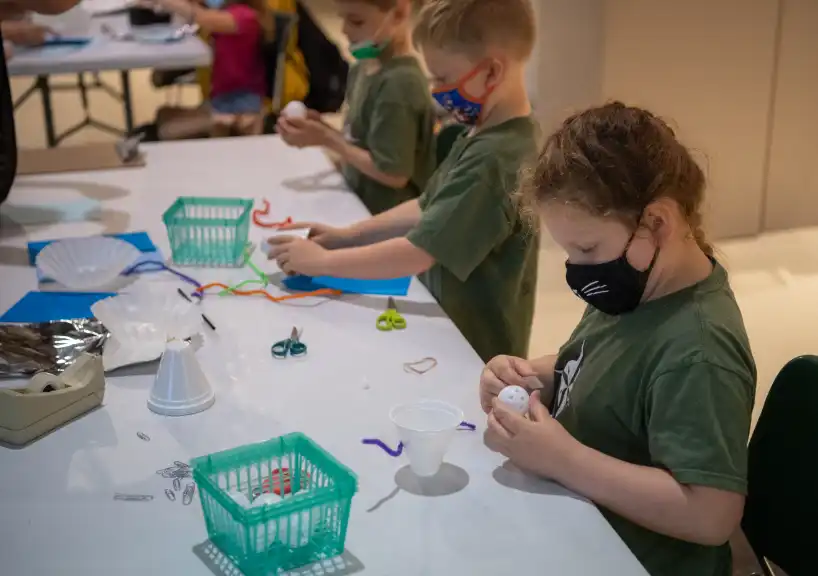
Bernoulli’s Principle
Grades K-12
Students will follow along with dynamic demonstrations of Bernoulli’s principle in action as they learn how to flatten a tent with a straw, levitate a ping pong ball in midair, and more.
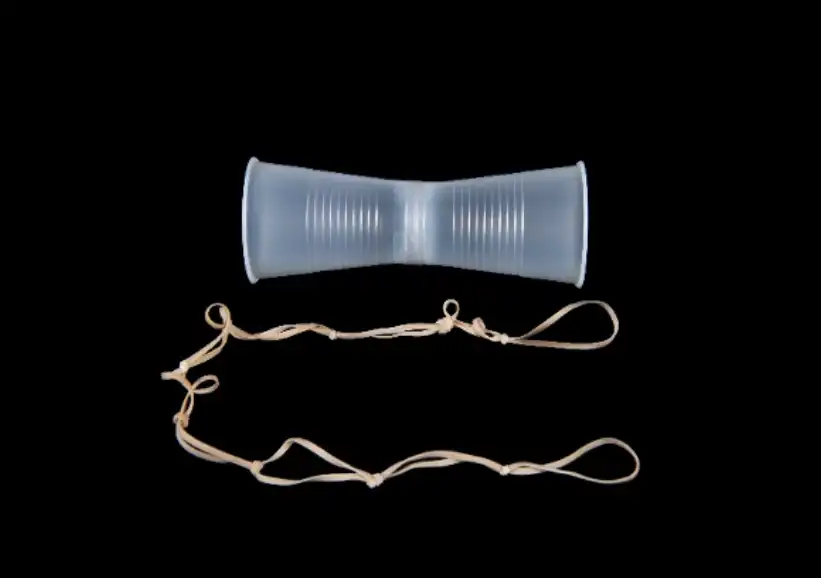
Flying Cups
Grades 6-12
Students follow simple directions to build a glider out of plastic cups and tape. This low-tech activity helps students understand the effects of torque, Newton’s Third Law, the Magnus Effect, and Bernoulli’s Principle. This activity is easily modified to focus on any of the above topics.

Tumblewing Gliders
Grades 6-12
Students will build a wing that flies on a shelf of air provided by their walking action to illustrate one of many ways lift and thrust can be provided to an airfoil. This lesson also gives background to Bernoulli’s Principle and shows how changes in design can affect performance.
View more options by creating your free educator account on EAA's AeroEducate
Four Forces of Flight
Learn more about the four forces of flight from the education team at EAA.
Video applies to youth in grades K - 12.
Download related activity hand-outs and instructions below.

Tumblewing Gliders
Grades 6-12
Students will build a wing that flies on a shelf of air provided by their walking action to illustrate one of many ways lift and thrust can be provided to an airfoil. This lesson also gives background to Bernoulli’s Principle and shows how changes in design can affect performance.
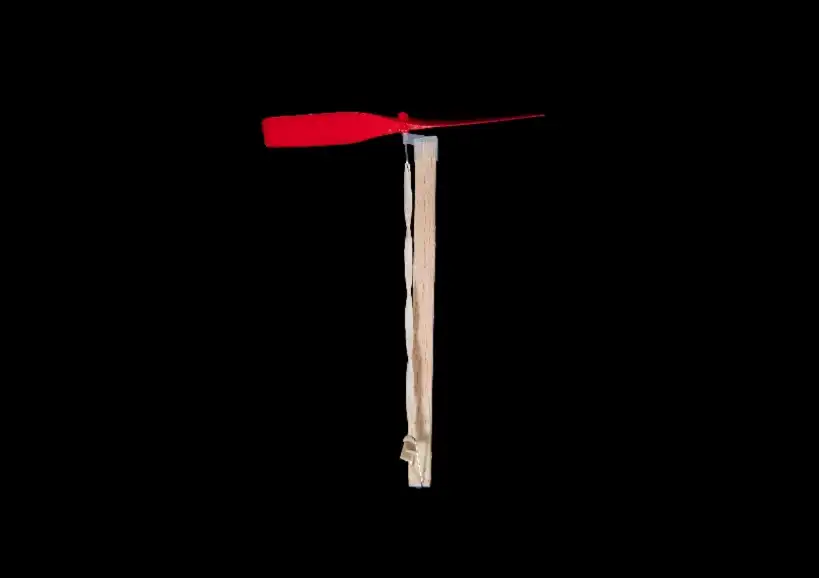
Whirling Dervishes
Grades 9-12
By constructing a helicopter-inspired device and testing it to minimize the effects of torque, this lesson focuses on the concept of “torque” which is the twisting motion that affects propeller-driven airplanes and helicopters. This lesson also covers Newton’s Third Law, as the students should realize through the activity that every action has an equal and opposite reaction through the movement of the helicopter responding to the rubber band rotations.

Flying Cups
Grades 6-12
Students follow simple directions to build a glider out of plastic cups and tape. This low-tech activity helps students understand the effects of torque, Newton’s Third Law, the Magnus Effect, and Bernoulli’s Principle. This activity is easily modified to focus on any of the above topics.
View more options by creating your free educator account on EAA's AeroEducate
Torque
Learn more about torque from the education team at EAA.
Download related activity hand-outs and instructions below.

Whirling Dervishes
Grades 9-12
By constructing a helicopter-inspired device and testing it to minimize the effects of torque, this lesson focuses on the concept of “torque” which is the twisting motion that affects propeller-driven airplanes and helicopters. This lesson also covers Newton’s Third Law, as the students should realize through the activity that every action has an equal and opposite reaction through the movement of the helicopter responding to the rubber band rotations.

Flying Cups
Grades 6-12
Students follow simple directions to build a glider out of plastic cups and tape. This low-tech activity helps students understand the effects of torque, Newton’s Third Law, the Magnus Effect, and Bernoulli’s Principle. This activity is easily modified to focus on any of the above topics.
View more options by creating your free educator account on EAA's AeroEducate

